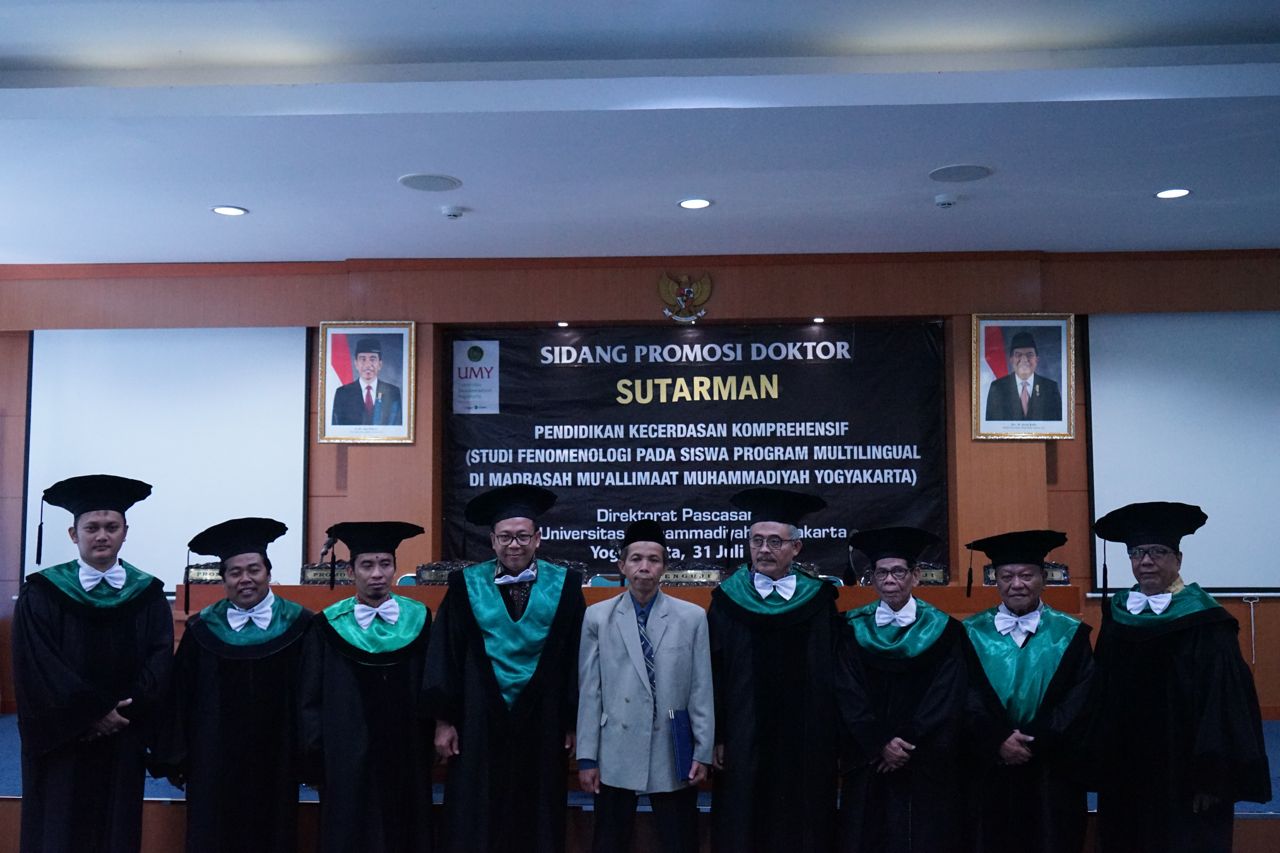Demands in educational institutions, particularly Islamic educational institutions are getting increased in this globalization era. Educational institutions in Indonesia are responsible for building strong and competitive characters so that they can compete with other students in ASEAN. However, they are now required to confront a lot of Indonesian students’ concerned characters such as violence, truancy, brawl, drug trafficking, and LGBT issue. Thus, one of the factors causing the issues is that holistic intelligence has not been entirely taught in the educational institutions.
In a defense on Tuesday (31/7) at Graduate School of Universitas Muhamadiyah Yogyakarta (UMY), Sutarman presented his dissertation entitled ‘A Phenomenology Study on Students at Multilingual Programs of Madrasah Mu’amalimaat Muhammadiyah Yogyakarta’. “Indonesia should be able to enlighten students comprehensively (holistically) with spiritual, affective, cognitive, psychomotor competences and skills. I selected students at Multilingual Programs at Madrasah Mu’amalimaat Muhammadiyah Yogyakarta because the school is one of the best female schools in Indonesia established by K.H. Ahmad Dahlan in 1918,” stated Sutarman.
He explained that it is a qualitative research with a phenomenology approach focusing on holistic education consisting of Spiritual Quotient (SQ), Emotional Quotient (EQ), Adversity Quotient (AQ), and Intellectual Quotient (IQ). Meanwhile, based on Al-Qur’an, intelligence refers to always remember Allah while standing or sitting or [lying] on their sides and give thought to the creation of the heavens and the earth, (QS Ali Imran (3): 190-191). “It can be concluded that education instilling four quotients, namely SQ, EQ, AQ, and IQ at the school and dorms can bear holistically smart students. It was shown by changes of students’ characters such as intrinsically religious, social, persistent, patient values. Having the quotients also enhance their achievements and capability to think logically with faith values,” told Sutarman.
He added that his research revealed that the quotients can contribute to development of sciences, theories, practices, and human resources. “Even though this research has yet propose a novel theory, I hope that this research can benefit the education development in Indonesia and can be a reference for studies of Islamic education areas. Indeed, the research findings are expected to be a solution for issues of juvenile delinquency, moral decreasing, Klitih anarchism done by students in Yogyakarta, and brawl,” declared Sutarman.
Additionally, examiners of Sutarman’s dissertation defense were Sri Atmaja P. Rosyidi, Ph.D., Prof. Dr. Heru Kurnianto T., MBA., Dr. Tasman Hamami, M.A., Dr. Muhammad Anis, M.A., Dr. Muh Samsuddin, M.Pd., and Dr. Abd Madjid, M.Ag. Suratman was the 45th graduate from Doctoral Program of Psychology of Islamic Education of UMY.







